In this article we examine foods to increase female fertility.
Preparing your body to have a baby is a process many people don’t realise can start well before the window of conception. There are certain foods that can be used to increase female fertility and are more effective if introduced into the diet before falling pregnant.
When to Begin
On average, a woman needs up to 4 months to intentionally start taking care of her body (also known as ‘baby prepping’) if she wants to encourage the healthiest method to fall pregnant.
It is worth seeking professional health-care advice when looking to introduce new foods and supplements into your diet, particularly if having difficulties with conception and fertility.
It’s also important to note that there is no specific diet that will without fail, result in pregnancy, however food and lifestyle choices do have a significant impact on fertility health in both men and women.
There are many supplement recommendations to target specific hormone and nutrient areas however we are looking at how, outside the world of supplements and vitamins, female fertility can be increased specifically by the foods consumed.
Here are 10 Foods to Increase Female Fertility:
1. Beans and Lentils
 Lentils and beans are high in protein, and it’s suggested that consuming more plant-based proteins instead of meat-based proteins actually have a positive impact on fertility health.
Lentils and beans are high in protein, and it’s suggested that consuming more plant-based proteins instead of meat-based proteins actually have a positive impact on fertility health.
For example, a study has shown that female infertility may decrease by over 50% when just 5 percent of total calories are sourced from plants instead of animals, emphasis on red meats and chicken.
Beans and lentils are also a strong source of fibre and folic acid, which help maintain a healthy hormonal balance in the body and improve ovulation, increasing female fertility.
2. Sunflower Seeds
Sunflower seeds are small, easy snacks that are luckily jam-packed with nutrients that are beneficial to fertility in women. These seeds are rich in antioxidants such as Vitamin E, zinc, folic acid and selenium.
This all work towards improving the quality of eggs, and the overall health and function of the ovaries, menstrual cycle and ovulation.
A study (published by PubMed Central PMC 2014) was conducted to express that a higher folic acid intake in women led to higher chances of conception and carrying a pregnancy to full term.
3. Fruit
Fruits are so beneficial, not just to increase female fertility, but for ensuring the baby and mother keeps healthy and gets the right vitamins throughout pregnancy.
Citrus fruits such as oranges and grapefruits are a great source of Vitamin C and folic acid.
Other fruits and berries such as raspberries, blueberries and strawberries naturally contain antioxidants and phytonutrients, which work to increase immunity in the body and encourage gentle detoxing, creating an environment beneficial to female fertility.
4. Avocados
Avocados are a form of ‘healthy fats’, also known as monounsaturated fats, that provide the female body with fibre and folic acid, essential nutrients in the conception stages of pregnancy.
They also give the body a variety of other nutrients like folate, Vitamin K and potassium which may help the body regulate blood pressure and increase nutrient absorption, assisting in the foundation of increasing female fertility.
5. Full-Fat Dairy
Consuming full-fat dairy such as whole milk, certain cheese and Greek yoghurt have substantial benefits on fertility health, particularly when replacing low-fat dairy products.
Full-fat dairy consumption leads to a lesser likelihood of having problems with ovulation as they are a great source of the Vitamins D, A, K and E, along with a source of calcium and probiotics.
Low-fat dairy products, such as skim or low-fat milk can increase the chance of infertility problems in women as they can be detrimental to ovulation and the menstrual cycle.
6. Salmon
Increased female fertility can be encouraged by salmon, with particular emphasis on wild-caught salmon to minimise the consumption of mercury.
Salmon is a food found on most superfood lists and is rich with healthy fats, a natural source of protein and omega-3s, which are shown to be beneficial to fertility health in both men and women, along with an abundant source of selenium and Vitamin D.
In fact, one serving of salmon can equate up to 97% of the daily recommended intake of Vitamin D, important as infertility problems can be associated with not having enough natural Vitamin D incorporated into the diet.
7. Asparagus
Another food to increase female fertility is asparagus, as it contains nutrients vital for healthy conception and pregnancy growth.
It has been shown that just a one cup serving of asparagus, can provide the body with the full daily amount of recommended Vitamin K, 60% of the daily recommended servings of folate and at least 20% of vitamins such as A, B and C, all working to strengthen the female reproductive system.
8. Walnuts
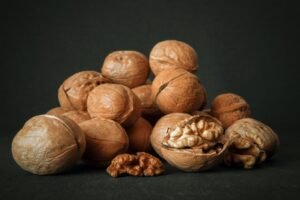 Walnuts, similar to wild-caught salmon, are full of healthy fats, omega-3s and omega-6s. These work together to regulate hormones, therefore improving ovulation, and maintain healthy brain function.
Walnuts, similar to wild-caught salmon, are full of healthy fats, omega-3s and omega-6s. These work together to regulate hormones, therefore improving ovulation, and maintain healthy brain function.
Whilst this is essential for reproductive systems in women, walnuts are known to support and improve the semen health in men, especially.
9. Egg Yolks
The yolk is in some ways the most important part of the egg as it is the primary source of Vitamin A, and contains almost all of the egg’s iron, calcium, folate, zinc and vitamins B and B12.
Eggs can also provide omega-3s and folic acid that work to help create red blood cells and to maintain the fetal development after the conception stages.
All these nutrients assist with increasing female fertility, along with eggs being a source of protein and choline, which some studies suggest can reduce the chance of some birth defects, however is still a controversial idea.
10. Oysters
A less common, yet helpful food to increase female fertility is oysters. This is because the nutrients oysters offer is specifically beneficial to the reproductive system.
For example, six oysters in a serving provide the daily recommended sources of Vitamin B12, zinc and selenium by around double what’s needed, and can equate to at least 43% of daily recommend iron, boosting a woman’s ovulation and egg health.
Reflecting on Foods to Increase Female Fertility
To conclude, fertility health can be influenced massively by diet and certain foods may increase female fertility well before a woman may even be thinking about conceiving.
Other factors that are suggested to help natural conception include making breakfast the biggest and most energy-inducing meal of the day and lowering your caffeine intake.



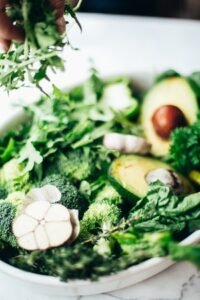 But that was theory and then there was reality.
But that was theory and then there was reality.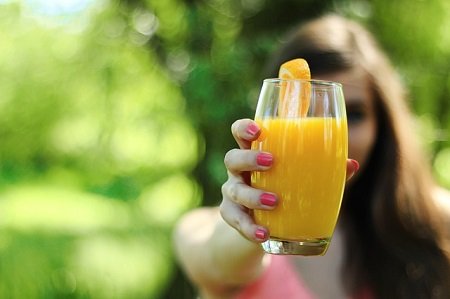

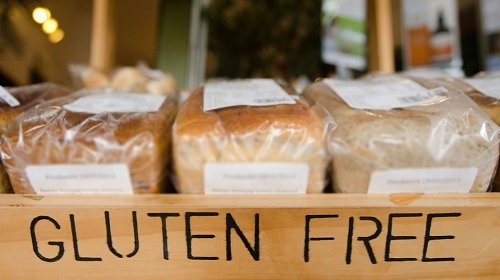
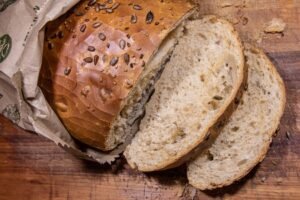 Stacey Roberts from Sharkey’s Healing Center shared a case in her August 2008 newsletter that she had of a couple who had been trying to conceive for three years and received the diagnosis of unexplained infertility.
Stacey Roberts from Sharkey’s Healing Center shared a case in her August 2008 newsletter that she had of a couple who had been trying to conceive for three years and received the diagnosis of unexplained infertility. I’ve been suffering from digestive issues for a while now. They include bloating, constipation, and blood in the stool. Unfortunately, I started a gluten-free diet before I being tested.
I’ve been suffering from digestive issues for a while now. They include bloating, constipation, and blood in the stool. Unfortunately, I started a gluten-free diet before I being tested.
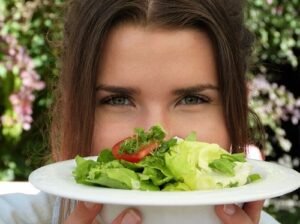 Sifting through books and articles on fertility and health I’ve come across various studies on the effects of animal and vegetable protein on fertility. There is, however, no consensus on which source is best for improving your changes of conception. What doctors and researchers do agree on, though, is that insulin regulation is vital to fertility.
Sifting through books and articles on fertility and health I’ve come across various studies on the effects of animal and vegetable protein on fertility. There is, however, no consensus on which source is best for improving your changes of conception. What doctors and researchers do agree on, though, is that insulin regulation is vital to fertility.
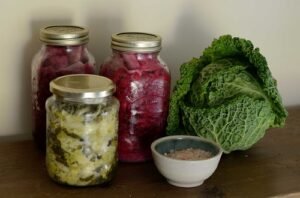 Probiotic bacteria are the friendly bacteria that live in our digestive systems. They are vital to our health and well being and are responsible for breaking down our food, manufacturing many vitamins like the B-complex vitamins and producing antibiotics that prevent colonization of the harmful bacteria.
Probiotic bacteria are the friendly bacteria that live in our digestive systems. They are vital to our health and well being and are responsible for breaking down our food, manufacturing many vitamins like the B-complex vitamins and producing antibiotics that prevent colonization of the harmful bacteria.
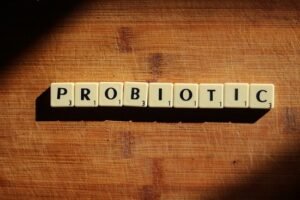 It’s not a surprise that these little inhibitors are so important to us given the slew of responsibilities they have. Just to name a few of these responsibilities of probiotic bacteria:
It’s not a surprise that these little inhibitors are so important to us given the slew of responsibilities they have. Just to name a few of these responsibilities of probiotic bacteria:
 A Danish study
A Danish study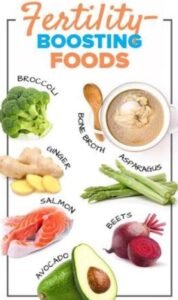 Foods that Contain Prebiotics
Foods that Contain Prebiotics
 Zita West (a midwife, nutritionist, and acupuncturist specializing in fertility) in her book,
Zita West (a midwife, nutritionist, and acupuncturist specializing in fertility) in her book,